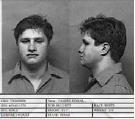by Bernd Debusmann, Jr.
Mexican drug trafficking organizations make billions each year smuggling drugs into the United States, profiting enormously from the prohibitionist drug policies of the US government. Since Mexican president Felipe Calderon took office in December 2006 and called the armed forces into the fight against the so-called cartels, prohibition-related violence has killed more than 30,000 people -- as of this week more than 9,000 this year. The increasing militarization of the drug war and the arrest of dozens of high-profile drug traffickers have failed to stem the flow of drugs -- or the violence -- whatsoever. The Merida initiative, which provides $1.4 billion over three years for the US to assist the Mexican government with training, equipment and intelligence, has so far failed to make a difference. Here are a few of the latest developments in Mexico's drug war:

In the city of Chihuahua, two Ciudad Juarez attorneys and a companion were executed after being snatched off a street by an armed commando. The two men were in Ciudad Juarez to investigate a case for a client they represent who faced federal charges.
Friday, November 19
In Tamaulipas, 11 suspected members of the Zetas Organization were killed during a clash near the town Nueva Ciudad Guerrero. The firefight occurred after soldiers on patrol came under fire. Two other gunmen were captured and nine rifles were seized, as well as four handguns, a grenade launcher and body armor.
In Ciudad Juarez, five people were murdered across the city. Among the dead was a municipal policeman who was gunned down on his day off. He is the 55th municipal police officer killed this year. In total, 130 policemen from the various law enforcement bodies that operate in Juarez have been killed so far in 2010.
Saturday, November 20
In Mexico City, authorities began the process to extradite Edgar Valdez Villareal, better known as La Barbie, to the United States. Valdez, 37, was a high ranking lieutenant in the Beltran-Leyva Organization before being captured in August. He is charged in a 2002 indictment in Louisiana and a 1998 indictment in Texas, both for his involvement in cocaine trafficking. Valdez is a US national, as he was born in Laredo, Texas.
Sunday, November 21
In Colima, a former state governor was shot and killed at his home. His wife was wounded in the attack. Cavazos left office in November 2009. He is one of several governors, ex-governors and gubernatorial candidates killed in Mexico in the last few years. Colima has been relatively free of the rampant drug-related violence seen in other parts of the country. The state Secretary of Economic Development, who was visiting Cavazos at the time of the attack, was also wounded in the incident.
In Tepic, Nayarit, five suspected drug traffickers were shot and killed during a series of firefights across the city. The incident began after soldiers began chasing a vehicle with armed men aboard. One gunman was captured in the incident, and two soldiers were wounded.
Monday, November 22
In Colima, police accidentally shot dead a doctor during an operation to find the killers of ex-governor Cavazos.
Tuesday, November 23
In Brownsville, Texas, border patrol agents seized over 700 pounds of marijuana in the remote Flor De Mayo area of the city, which is located off Highway 281 and is just across the Rio Grande. The area is a well-known crossing point for drugs coming from Tamaulipas.
Total Body Count for the Week: 159
Total Body Count for the Year: 9,241
Read the previous Mexico Drug War Update here.
This work by StoptheDrugWar.org is licensed under Creative Commons Attribution-ShareAlike 4.0 International
Comments
Still no explanation why Mex gov't wants weed to be illegal
That one tiny little detail that they forget about. Why are they fighting a war against cannabis (i.e. in favor of alcohol) in the first place? All this violence caused by a war to enforce the supremacy of a drug that is notorious for causing violence. If the US and Mexican governments don't love violence, they've got a helluva funny way of showing it.
Add new comment